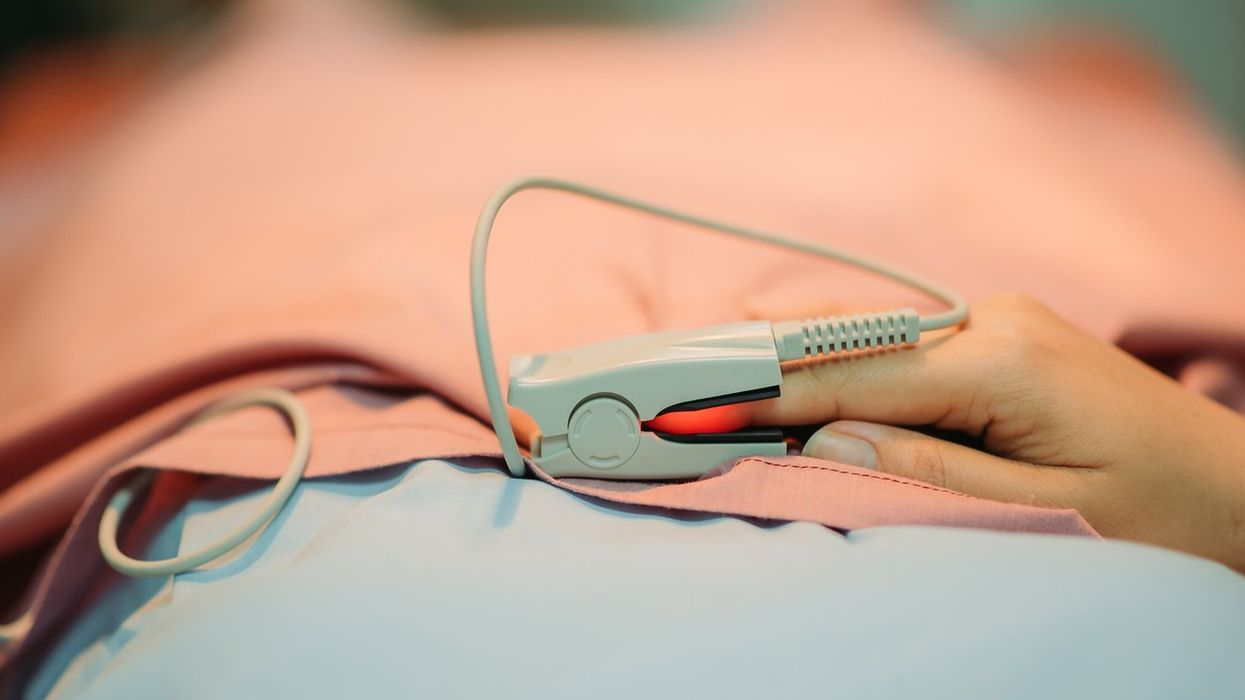THE independent NHS Race and Health Observatory has called for an urgent review of suitable pulse oximetry products for ethnic minority people in England including those products used in medical settings.
The accuracy of Pulse Oximeter readings from black and minority ethnic (BME) people could be seriously misleading, particularly during the Covid-19 pandemic, and need further assessment, a review has said.
In addressing concerns for black and minority ethnic patients at greater risk from Covid-19 who self-administer tests at home, the Observatory points to disparities and limitations.
According to the review, treatment could also be delayed by individuals over-relying on physical descriptions within the product guidance of pulse oximeters as general terms such as ‘pale’, ‘blotchy skin’ or skin or lips ‘going ‘blue’, will not typically apply to BME people.
The review, carried out on behalf of the Observatory, was led by Olamide Dada from Cardiff University School of Medicine.
In 2017, Olamide also founded the charity, Melanin Medics, which seeks to promote diversity in medicine.
Olamide Dada said: “As this review clearly shows, more evidence is needed to examine the effectiveness of pulse oximeters for all patients. It is essential that clinicians and carers have full knowledge of diverse clinical signs when observing ethnic minority patients at risk of Covid-19, and particularly those using home devices.
“More detailed analysis is needed to help determine the reliance on, and future development of, pulse oximetry devices going forward.”
Pulse Oximeters test the level of oxygen in a person’s blood by attaching a clip like device to a person’s finger, toe, or earlobe, sending a beam of light through the body to measure and diagnose lower than normal blood oxygen levels.
The research review dating back to 1990, highlights inaccurate and ambiguous readings when factoring those with darker pigmentation and skin tones from a comprehensive stock-take of available research.
The majority of oximeters have been developed based on studies measuring oxygen levels in Caucasian and light-skinned individuals.
Dr Huzaifa Adamali, respiratory consultant at North Bristol NHS trust said: "Healthcare professionals are increasingly reliant on the pulse oximeter to detect early deterioration and inform clinical decision-making including commencement of oxygen therapy. Although a valuable clinical tool, we are becoming increasingly aware of its potential limitations and errors of interpretation. Skin pigmentation may influence the accuracy of pulse oximetry readings.”
Analysis from a recent 2020 Michigan University study found pulse oximeter readings of blood oxygen levels were three times more likely to be inaccurate among African-American patients, there has been limited widescale trials in the UK.
Dr Habib Naqvi, director of the NHS Race and Health Observatory, said: “At this pivotal time, we cannot afford to overlook this rapid review and the recommendations for action which can prevent late hospital admissions and help improve the health of black and minority ethnic people at risk or recovering from Covid-19.
“This review has stressed the need to ensure healthcare equipment and devices are culturally competent and sensitive, whilst not contributing to the array of current and historic health inequalities.”
Royal Pharmaceutical Society director for England, Ravi Sharma, said: "This review exposes an area of health inequality where one treatment may yield more effective results for one group of patients over another, this is not acceptable and needs to be urgently addressed.
Pharmacists and other healthcare professionals who use pulse oximeters in their practice or provide them to the public should take ethnicity into account when considering their effectiveness in users"





